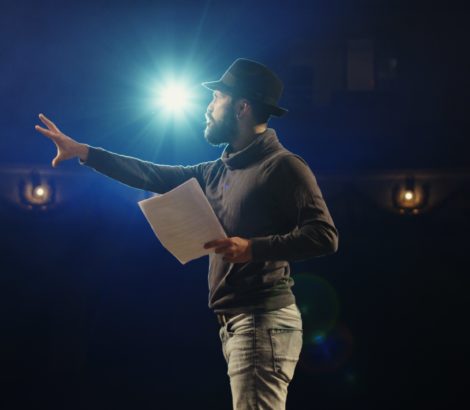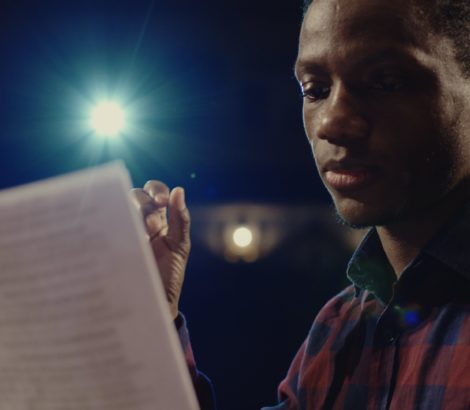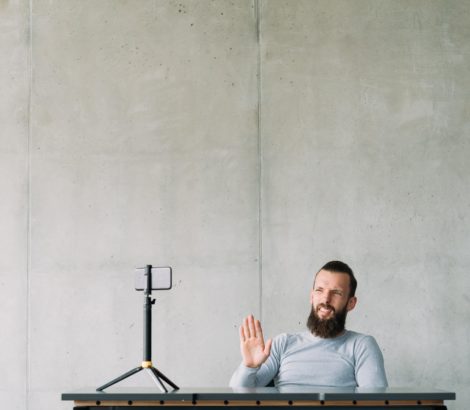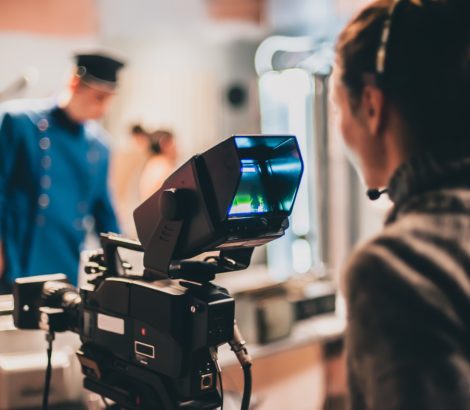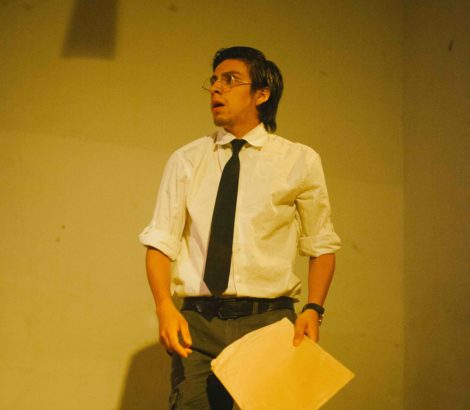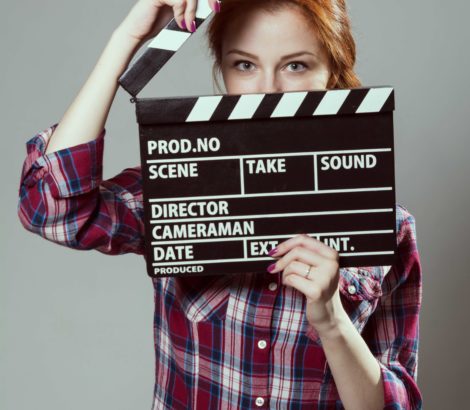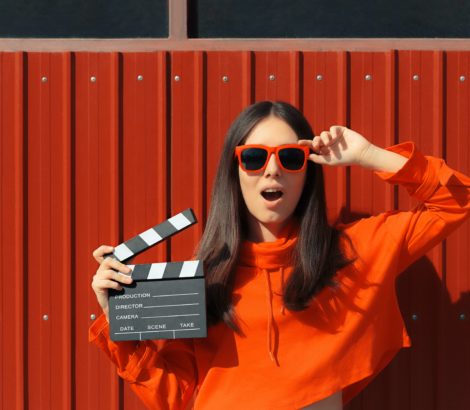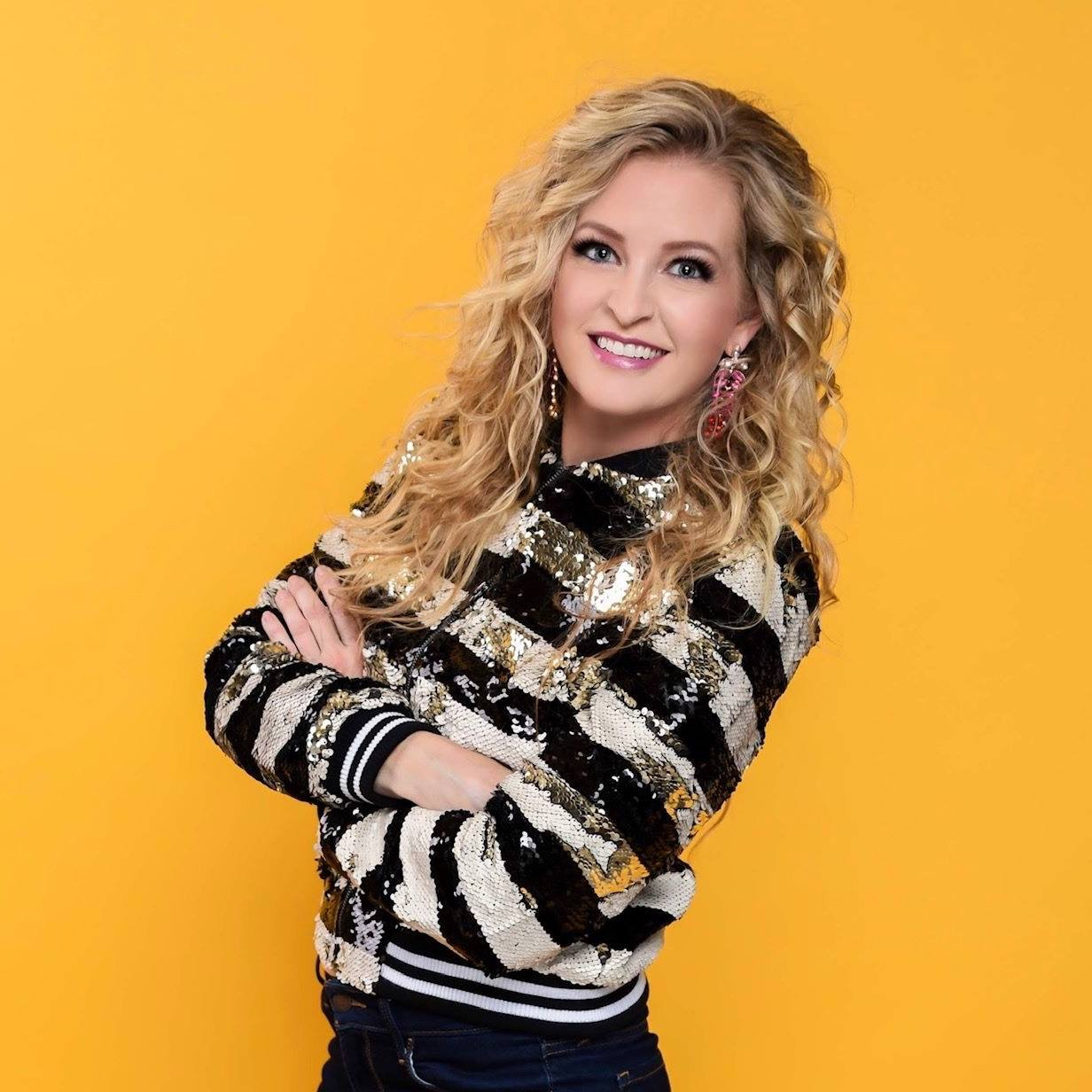I’ve been a student of acting for 25 years and very little of my training is in improv. Sure, I knew how to improvise in a dramatic scene because that’s how one of my coaches taught emotional preparation, but those silly theater games – not so much. The last few years I was living in Boise and would spend weeks at a time in LA. During those trips I got so lonely and depressed and grew very tired of sitting around a friend’s apartment waiting for the phone to ring. On those dark nights I would take myself to a UCB show. One hour and seven dollars later my mood was instantly lifted. Laughter is great medicine, but I think the best part of it was how inspired I was by the in-the-moment storytelling. I loved that the experience was just that – an experience. I was witnessing improvisers create something right before my eyes that would never happen again. Every show was different, and we were all there to witness it unfolding – the audience and the performers.
I decided to explore improv for several reasons. First of all, I want to be able to do what those improvisers did! Not just because they were amazing at it, but because they were always having so much fun. The second reason is that it scared the hell out of me. I have a habit of throwing myself into things that scare the hell out of me, and it’s always paid off. I was feeling stagnant and I knew that in order to grow I would have to be willing to be uncomfortable. Professionally, I knew it would look good to have improv training on my resume. Since I was trying to re-introduce myself into an industry that I had been away from for a while, I knew I needed opportunities to perform and network.
I started with a week-long intensive at UCB followed by a workshop at The Groundlings. I’m currently in the last week of Improv 1 at Second City in Hollywood and have already signed up for Improv 2 starting immediately after our class show. I can’t get enough. It’s giving me everything I need right now, even the things I didn’t know I needed.
When I was living in Boise, I met a lot of wonderful, magical humans. Seriously, there’s something in the water there. Of all of these wonderful people that have touched my life, one of my absolute favorites is a fierce, funny, fun, compassionate, loving, hard-working, inspiring woman named Megan Bryant. In my eyes, she’s the Queen of Improv in the Treasure Valley. Here’s the thing: Improv isn’t just for actors. Megan teaches improv for everyday life. Improv is a growing trend in corporate training and Megan has been hired to share these techniques in business settings to consistently boast noticeable results . Employees get better with communication and thinking on their feet. Her approach fosters innovation, confidence, trust, team building and creativity.

Photo by: dosecreative
I wanted to dig a little deeper into the phenomenon of improv’s ability to change people so positively and profoundly, so I reached out to an expert in the field and asked some questions. Here’s the recap:
What was your introduction to improv?
My brother, Gavin, invited me in 2006 to come and play with a local troupe that was in Boise at the time. I had never even heard of it (improv), even though I had been in theatre in junior high and high school. So, I stumbled upon it in my early twenties and never looked back. I joined in thinking it would be this fun, creative outlet on the weekends.
I was in the corporate world – I was a bank manager. Really early on, like within weeks, I started to notice the way my attention was shifting, the way I was listening in everyday life. For me it really quickly showed an automatic life transition. The skills had a life application and a mindset of presence and positive vibes that are naturally in improv.
Having an acting background in theatre, what was the major difference you noticed in the training?
It was goofier, which isn’t the way I teach it but the way I learned it. It was about making big choices, taking risks. It allowed positive interaction and storytelling in a way that didn’t require rehearsal and I loved being off script.
What would you say your biggest struggle was when you were first learning?
Honestly, it felt so at home to me that the only real struggle was that I couldn’t get enough of it.
The way that I learned it was in a group that had a really structured way of using gimmicks and I wish it had been more of a free form because it became more of a crutch. It’s still part of my evolution, getting out of the gimmick.
We overcomplicate things a lot in a performance realm and when it’s so gimmicky people wouldn’t even have a grounded character most of the time because they were so in Yuk Yuk mode that they would lose the character and the relationship because they’re just trying to execute a gimmick. It’s important to remember that most of the time people laugh because they see something relatable, not necessarily because something is super jokey.
What are the major elements in improv training that have helped you in your life?
Here are the top five I teach in my workshop—
Yes, And – Acceptance and acknowledgement of whatever has been presented. Not that we’re agreeing, which is a huge misconception in improv. In the world of improv people teach that you’re supposed to agree, and maybe on stage you can do that, but in life it’s an acceptance and acknowledgement of whatever just happened, and then requires that you do something with it. When brainstorming on a new idea, it keeps you from being stuck in a rut. You have to make a decision, add new information, you have to take whatever happened and move with it. It’s not always necessarily about right or wrong. When you’re dealing with real life, if we say “yes, and … let’s try this thing – oh, now I know I don’t like to go running.” But if I never tried running, I wouldn’t know that I hated it. Sometimes it’s a way to fail faster. It’s a way to keep what I see as a “ready” position for life. It’s a very action-oriented space to be in – Yes, And. It allows us to stay in the most positive mindset when faced with something difficult.
NOTE: “Yes, and” is a pillar of improvisation. It’s the acceptance principle — when someone in a scene states something, accept it as truth. The “and” part of this principle means to build on that reality that has been set.

Yeah, But – is the archnemesis of Yes, And. It’s the blocking mechanism that keeps us from making progress. Teaching those hand in hand allow people to see for themselves if they are Yeah-Butters in their life or find out who are the Yeah-Butters in their world. If someone offers an idea in a work meeting and they get Yeah-Butted, they’re going to shut down and not want to keep offering up ideas. People who operate from a Yeah, But place are not able to provide a safe space for all the things to exist because they dismiss rather than accept and acknowledge like in Yes, And. Yeah, But is the killer of ideas, and in improv it’s the fastest way to derail a relationship in a scene.
Suspend Judgement – To suspend judgment. A long time ago I started using Suspension of Judgment. We are naturally very judgmental and critical of ourselves and others – but to suspend judgment and actively think about our thoughts and notice that we are judging, we can take a moment to suspend it and pause before we react. In the moment in a scene, if something comes from way out of left field, we can allow a little bit of space, a little bit of silence while the audience is also adjusting to whatever just happened. In that moment you can quietly explore how you want to interact with something you are feeling critical about. It allows us more control and power over our ability to navigate through judgment, because there’s no doubt judgment will non-stop happen in our lives, but if we are aware of it then we can decide if we have to react. Does it actually affect us? If we are going to react, what is the best-case scenario? Is this a relationship that matters? Is this a work task that’s important? Whatever it is that we’re judging, we get to then control what our output is that we are putting back into the world around us if we take that moment to pause before we just immediately execute.
Participating Fully – That’s derived from being present in the moment, but for me, being present in the moment is a bit passive. You can be present for something without taking ownership of it. Participating fully really means you are putting skin in the game, contributing ideas, taking risks, expressing your opinion and taking ownership of your own experience, whether it’s a performance or in real life. This ties into Yes, And – the moment you fully participate. If you really try something you’re going to know if you want to keep doing more of that or if you don’t like it. If you meet a person and you’re really engaged and you’re learning about them, you decide if they’re going to be part of your life and in what capacity. This applies to everything – work, school, learning, skydiving – you’re not only there and present in the moment, you are engaging.
A Space of Respect – When you are activating all four of those other principles, it allows you to recognize how much we as individuals want to be honored and validated in who we are, that our experience from the day we were born up until this moment now is valid. It’s what I’ve experienced, it’s through my lens, it’s the way I perceived it and I want people to respect that. If I want that for myself, I have to offer that to other people. For me that’s what brings it full circle as a real way to live an improv experience.
As a teacher, what do you see is a common self-sabotaging behavior or belief in people that limits their experience?
People who are by nature Yeah-Butters are people who are naturally living in a victim space and everything is happening to them, no matter what it is. If people lack the self-awareness that they are blocking themselves, they can’t do anything else with it. They will constantly make excuses of why it (improv) doesn’t work, not that they aren’t doing it, but that it doesn’t work. I can see in someone’s body language that they are guarded, probably because they’ve been Yeah-Butted so hard in their lives.
Improv, for me, is personal development. Some people don’t really want to do the hard work, they just want to float along and put their blinders on and not allow it. Any of those struggles are probably more deeply and psychologically rooted than stuff I can legally address without some certifications. (LOL)
Some people don’t realize that they are the key to unblocking themselves and there’s only so much anyone else can do to help them. It really does take repeat efforts. There are only a few companies that are smart enough to bring me in quarterly, so I get to work with the same people more than once. They want the growth and the change and discovery to be their own ideas. I try to do the exercises in a way that people get to see the way that they show up, almost in an exaggerated way, but it is still true to them – so people can go “Oh, I’m the one that does that” and know that they’re not going to be judged harshly for it. The key is being able to have enough time with them that they can see it for themselves and go “Now that I know better, I can do something different.” But they need it to be their idea.
Have you ever seen anyone go from being a Yeah-Butter to a Yes-Ander in their life?
Oh yeah, all the time. Sometimes people recognize it in the middle of class and sometimes months or years later people realize it. Someone just recently shared with me that switching their mindset as a result of a workshop saved their marriage.
What qualities do you see in people who take to it really well?
Natural Yes-Anders. People who generally like to learn and grow and want to be better in life. Some people that just already naturally get the human side of life – I don’t know how it’s gotten to the point where it’s so severely lacking.
I have used it to get through the hardest parts of my life. It’s easy to say yes when something seems fun and it is way harder and yet more rewarding when you have to Yes, And when the going gets tough.
Sometimes it’s a way to fail faster.
Megan Bryant, Queen of Improv
Megan’s love of improv is demonstrative of how comfortable she is stepping into the unknown and having faith that everything is going to be okay. This is probably one of the most valuable qualities a person can have, because everything is in the unknown. Willingness to go into unknown territory is how our lives get bigger.
I didn’t know how much I needed it and how much it would change my life until I jumped in with both feet. Improv is teaching me how to be fully engaged in the moment, completely invested in and trusting of other players, and let go of trying to control the outcome. It requires faith that if you absolutely show up in the moment you are in, everything you need in the moment that is coming will be there for you when you get there. It’s shown me that anything and everything that shows up is a gift, if you choose to see it that way. Most importantly, it teaches you the art of radical acceptance.


